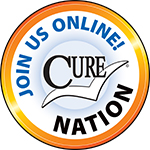In 1998, I was a 19-year-old sophomore at Texas Tech University. I was a typical student. I was an active member of a fraternity. Everything seemed to be following an ordered path. And then, on February 13th, I woke up in the hospital.
Miraculously, eight days prior, my fraternity brother had found me on the floor. I doubt if I’m the only guy with a story about being found on the ground by a fraternity brother during his college days. Unfortunately, rather than being the result of a memorable college party (or more likely, a college party that can’t be remembered), my experience was a result of a nasty bout with bacterial meningitis.
Waking up was a gift. My parents, holding vigil at my bedside, had been told that I might not. As I swam back to an uneasy consciousness, it became clear that emerging from the coma was far from the last of my challenges. Along its wide and reckless path of destruction, meningitis left me with impaired vision and a neurogenic bladder.
Out of the hospital and recovering at home, supplied with four reusable catheters and an elaborate (and insufficient) sterilization process, it only took a couple of days to experience the first urinary tract infection (UTI). Just beginning my long road to recovery, this was a disturbing setback and major blow to my confidence.
Looking back on the early days of catheter use, awkwardness, frustration, and embarrassment were feelings I knew quite well. To add insult, because of other complications from my battle with meningitis, I needed someone else to administer the catheter four times per day. You’ve heard it said that necessity is the mother of invention. That’s both literally and figuratively true for me and my catheter journey. Let’s just say, the first time my mother was the only person available to assist was the last time I needed assistance from anyone. My mother and I have not spoken about the experience, since.
I didn’t know what I didn’t know
At the time, I didn’t have any friends that used a catheter. I didn’t have any peer support. Still the early days of the internet, I didn’t have online resources. My only source of expert information was the urologist whose office looked like it was decorated before catheters existed. It was clinically accurate, but it didn’t offer the support I needed. I began to use denial as a mechanism to avoid facing the reality of catheter use.
Worse than my catheter denial was the poor quality of the catheters I was prescribed. Today, there are discreet catheter options, but back then, my tools were sub-par and required an operating room level of sterilization to safely administer.
Missteps aside, my return to school went pretty well. I was able to participate in typical rites of passage and social gatherings despite my unusual ‘plus-one’. However, when I went to college parties, was meeting new people, and living a carefree lifestyle, I viewed my collegiate catheter as an awkward social companion. So, I often left it behind.
One such occasion was on my 21st birthday in my junior year. I celebrated with friends on Sixth Street in Austin.
If you don’t want to use a catheter to urinate, the only way to drink beer on your first legal drinking day is to hold it. I don’t mean holding it for a while; I mean increasing the size of your bladder until it feels like you’re about to give birth. We’re talking – I didn’t just have to use the restroom, I mean I was in pain and coming up with baby names. It may sound funny now, but in truth, I put myself in a very unhealthy situation.
What I learned was that if I wanted to have anything that resembled a normal life, I had to be willing to live in the reality of my situation. Living with the self-imposed burden of silence was unhealthy and foolish.
What I want you to know
Equipped with years of uncomfortable experiences and a tremendous belief that there had to be a better way, I have swallowed my pride and embraced my situation to escape the silo of advice in which I was trapped.

John B. Grimes
While I don’t recommend discussing catheters at a dinner party, I do recommend that people connect with other catheter users and take advantage of places available for discussion – like this Cure Nation platform or blogs and podcasts like mine.
I offer an online space for individuals to share experiences and thrive while overcoming life’s challenges. Most topics are about meningitis and visual impairment, but I have come to realize that inspiration and ideas for prevailing over challenges can apply to many kinds of ‘battles’ – even something as personal as using a catheter.
By being more open about my situation, I hope to be able to demystify catheters and the people that use them. I want to share my experience for finding a better way. In fact, there are many.
Today, I no longer need to decide between the complications of ‘holding it’ all day and the inconvenience of lugging around a bunch of gear. I can be on the move with little consideration for how much coffee I’ll be drinking. Having discovered newer catheter options, I am now prepared to discreetly maintain my bladder health with the frequency my physician recommends.
Preparedness and a disciplined cathing routine have become high priorities. So, my message to you is don’t wait… especially if you’ve gotta go!
If I could send a message to my 19-year-old self, it would read: Destiny is debatable. But the filter through which you view your circumstances is most certainly up to you.
I offer the same advice to you. Whether you wake up tomorrow in your own bed, in a luxury suite at the Ritz-Carlton, or in a hospital – don’t wait to start building your life into the one you want. Waiting is like being at the DMV: your future seems to be in the hands of the apathetic (doctors with poor prognoses, bosses who don’t value you, and your own nagging self-doubt). Don’t wait. Just do the next right thing. Even if you end up taking two steps forward and one step back, that’s still progress. In Texas, we even call it dancing.
John B. Grimes hosts a unique podcast called Ambiguously Blind. The mission is ‘to challenge beliefs and reveal abilities that make people extraordinary‘. Learn more at https://www.ambiguouslyblind.com.
Cure Medical and Convatec are not associated with Ambiguously Blind.
You may also enjoy:


